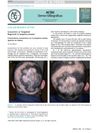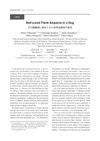 3 citations,
January 2008 in “Actas dermo-sifiliográficas/Actas dermo-sifiliográficas”
3 citations,
January 2008 in “Actas dermo-sifiliográficas/Actas dermo-sifiliográficas” Early diagnosis and treatment of Hidradenitis Suppurativa are important to prevent serious physical and mental effects.
 3 citations,
June 2001 in “International Journal of Cosmetic Surgery and Aesthetic Dermatology”
3 citations,
June 2001 in “International Journal of Cosmetic Surgery and Aesthetic Dermatology” Using both follicular units and slit grafts for hair transplants may give better hair density and graft survival.
 3 citations,
July 1997 in “Current problems in dermatology”
3 citations,
July 1997 in “Current problems in dermatology” Hair restoration surgery has evolved over time, with a focus on natural-looking results and managing patient expectations, while also considering potential complications and the lifelong progression of male pattern baldness.
 2 citations,
January 2022 in “Skin appendage disorders”
2 citations,
January 2022 in “Skin appendage disorders” A combination of methotrexate injections and CO2 laser treatment led to complete hair regrowth in two patients with hard-to-treat alopecia.
 2 citations,
March 2020 in “International Journal of Molecular Sciences”
2 citations,
March 2020 in “International Journal of Molecular Sciences” Topical treatments can deliver active molecules to skin stem cells, potentially helping treat skin and hair disorders, including skin cancers and hair loss.
 2 citations,
January 2017 in “Journal of Pigmentary Disorders”
2 citations,
January 2017 in “Journal of Pigmentary Disorders” Genetics, stress, and health issues can cause early hair greying, which affects self-esteem, and there's no cure, only hair dye.
 2 citations,
January 2009 in “Actas Dermo-Sifiliográficas”
2 citations,
January 2009 in “Actas Dermo-Sifiliográficas” Scalp psoriasis treatments like strong corticosteroids and vitamin D3 analogues are effective, especially when combined.
 2 citations,
January 2002 in “Dermatology + psychosomatics”
2 citations,
January 2002 in “Dermatology + psychosomatics” Topiramate may cause reversible hair loss.
 1 citations,
June 2019 in “Innovare journal of medical sciences”
1 citations,
June 2019 in “Innovare journal of medical sciences” Polycystic Ovary Syndrome (PCOS) is a hormonal disorder in women that can cause infertility and other health issues, and it may be improved by treatments that increase insulin sensitivity.
 1 citations,
October 2012 in “Elsevier eBooks”
1 citations,
October 2012 in “Elsevier eBooks” Skin stem cells can help improve skin repair and regeneration.
 1 citations,
November 1976 in “Archives of Dermatology”
1 citations,
November 1976 in “Archives of Dermatology” Dermatopathology has made significant progress but many skin diseases remain incurable, requiring ongoing research.
 1 citations,
November 1953 in “Archives of Dermatology”
1 citations,
November 1953 in “Archives of Dermatology” The document discusses various challenging skin conditions and their treatments.
 February 2023 in “Asian journal of pharmaceutical research and development”
February 2023 in “Asian journal of pharmaceutical research and development” Flavonoids in Iraqi marshland plants have potential health benefits like antioxidant and anti-inflammatory effects.
 February 2023 in “International Journal of Medical Arts”
February 2023 in “International Journal of Medical Arts” Trichloroacetic acid is a safe and effective treatment for hair loss in alopecia areata patients.
 April 2021 in “BMJ Case Reports”
April 2021 in “BMJ Case Reports” Accurate diagnosis of pseudolymphomatous folliculitis is crucial to avoid mistaking it for more serious conditions.
 November 2019 in “Harper's Textbook of Pediatric Dermatology”
November 2019 in “Harper's Textbook of Pediatric Dermatology” The document is a detailed medical reference on skin and genetic disorders.
 October 2019 in “Skin appendage disorders”
October 2019 in “Skin appendage disorders” The vitreous membrane in hair follicles changes shape during the hair cycle and may affect hair growth and nutrient exchange.

Tailored nonsurgical cosmetic procedures are crucial for safely treating diverse skin types, especially skin of color.

The conclusion is that a more comprehensive and precise approach is needed for diagnosing PCOS to address its broader health risks.
 June 2016 in “Makedonski medicinski pregled”
June 2016 in “Makedonski medicinski pregled” A man who drank too much hair growth medication got very sick but got better after hospital treatment.
 April 2016 in “Actas Dermo-Sifiliográficas”
April 2016 in “Actas Dermo-Sifiliográficas” The document concludes that a unique target-like hair regrowth pattern in alopecia areata may be more common than thought and should be properly identified.
 July 2015 in “Actas Dermo-Sifiliográficas”
July 2015 in “Actas Dermo-Sifiliográficas” A young woman with a rare fungal infection showed significant improvement after treatment with antifungal medication.
 July 2015 in “Cambridge University Press eBooks”
July 2015 in “Cambridge University Press eBooks” The document concludes that careful history and physical exams are crucial for accurately diagnosing polycystic ovary syndrome and distinguishing it from other similar conditions.
 September 2014 in “Springer eBooks”
September 2014 in “Springer eBooks” Aging causes hair to gray and thin, with the timing of graying varying by race, and factors like oxidative stress and genetics can lead to hair loss.
 September 2013 in “Neurodegenerative disease management”
September 2013 in “Neurodegenerative disease management” Teriflunomide is effective and generally safe for treating relapsing multiple sclerosis, reducing relapse rates and disability progression.
 January 2012 in “The Japanese Journal of Veterinary Dermatology”
January 2012 in “The Japanese Journal of Veterinary Dermatology” The dog's hair loss healed on its own without treatment.
 January 2009 in “Actas dermo-sifiliográficas/Actas dermo-sifiliográficas”
January 2009 in “Actas dermo-sifiliográficas/Actas dermo-sifiliográficas” Lasers and light treatments are now the most common ways to remove hair.
 September 2008 in “UK vet. Companion animal”
September 2008 in “UK vet. Companion animal” Castration is preferred for non-breeding male dogs with BPH, but other treatments are available with specific pros and cons.
 January 2006 in “Journal of Rural Medicine”
January 2006 in “Journal of Rural Medicine” Trichotillomania is more common than previously thought, with increasing diagnosed cases.
 November 2001 in “Dermatologic Surgery”
November 2001 in “Dermatologic Surgery” Galea fixation is a safe and effective way to remove bald scalp with minimal scarring and reduced stretch-back.






























